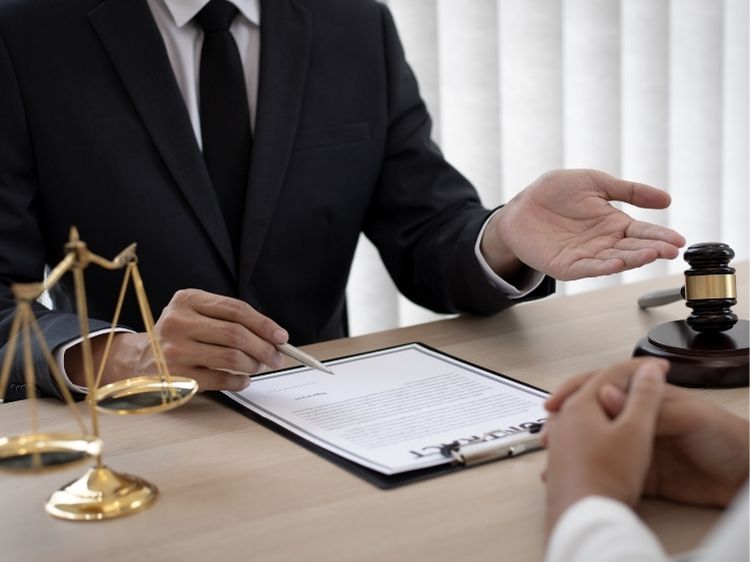What Is a Commercial Collections Attorney?
Running a business can be tough, and chasing down unpaid invoices makes it even harder. That’s where a commercial collections attorney steps in. These legal professionals specialize in helping businesses recover outstanding debts while ensuring compliance with relevant laws. Whether you’re a small business owner or a corporate executive, understanding the value of a collections attorney can save you time, stress, and money.
In this article, we’ll break down everything you need to know about commercial collections attorneys, from their key responsibilities to when you should hire one.
Why Do Businesses Need a Commercial Collections Attorney?
It’s no secret that unpaid debts can wreak havoc on cash flow. While internal collection efforts or third-party agencies may work in some cases, they often lack the legal power to enforce payment. A commercial collections attorney offers a legal edge, ensuring your interests are protected.
Key Benefits:
- Legal Expertise: They know how to navigate complex debt collection laws.
- Efficiency: Attorneys can push for faster resolutions than collection agencies.
- Protection: Avoid lawsuits or counterclaims by staying compliant with legal standards.
- Negotiation Skills: They can mediate settlements that maximize your recovery.
What Does a Commercial Collections Attorney Do?
If you’re wondering what exactly these professionals handle, here’s a closer look:
1. Drafting Demand Letters
- A formal demand for payment is often the first step. Attorneys draft letters that carry more weight than those from a collection agency.
2. Litigation Support
- When negotiations fail, they take the case to court to obtain a judgment against the debtor.
3. Asset Investigation
- Attorneys can locate hidden assets, ensuring you recover as much as possible.
4. Enforcement of Judgments
- Once a judgment is secured, they help enforce it through methods like wage garnishment or liens.
5. Ensuring Legal Compliance
- They ensure your debt recovery efforts adhere to federal and state regulations, protecting you from potential legal pitfalls.
Signs It’s Time to Hire a Commercial Collections Attorney
1. Debts Exceed 90 Days Past Due
If a client consistently dodges payments, it’s time to escalate the matter.
2. Large Sums of Money Are at Stake
Significant debts require a professional approach to minimize financial losses.
3. The Debtor Is Uncooperative
If letters and phone calls aren’t working, an attorney can apply legal pressure.
4. Concerns About Legal Risks
Using an attorney ensures compliance with laws like the Fair Debt Collection Practices Act (FDCPA).
How to Choose the Right Commercial Collections Attorney
Choosing the right attorney can make or break your case. Here’s what to look for:
1. Experience
- Prioritize attorneys who specialize in commercial collections rather than general practice.
2. Track Record
- Ask about their success rates in recovering debts.
3. Fee Structure
- Some attorneys charge hourly rates, while others work on a contingency basis. Choose what aligns with your budget.
4. Communication Style
- Look for someone who keeps you informed every step of the way.
The Process: What Happens After You Hire a Commercial Collections Attorney?
Hiring an attorney doesn’t mean instant resolution, but it does mean progress. Here’s a step-by-step look at the process:
- Initial Consultation
The attorney reviews your case to determine its viability. - Demand Letter Sent
A professional demand letter is sent to the debtor, outlining the debt and requesting immediate payment. - Negotiation
The attorney may negotiate a settlement or payment plan. - Filing a Lawsuit
If the debtor refuses to cooperate, the attorney files a lawsuit. - Obtaining a Judgment
After presenting your case in court, the attorney secures a judgment. - Enforcement
Post-judgment, they use legal tools to collect the debt, such as wage garnishments or bank levies.
Common Misconceptions About Commercial Collections Attorneys
1. They Only Handle Big Companies
- Not true! They assist businesses of all sizes, from small startups to large corporations.
2. They’re Too Expensive
- Many attorneys offer flexible fee arrangements, including contingency fees, where they get paid only if you do.
3. Litigation Is the Only Option
- Most cases are resolved through negotiation, avoiding lengthy court battles.
FAQs: Everything You Need to Know
1. What’s the difference between a collection agency and a commercial collections attorney?
A collection agency typically contacts debtors but lacks the legal authority to enforce payment. An attorney can take legal action to recover debts.
2. How much does a commercial collections attorney cost?
Costs vary depending on the complexity of the case and the attorney’s fee structure. Some work on contingency, while others charge hourly rates.
3. Can I use a commercial collections attorney for international debts?
Yes, many attorneys specialize in recovering debts from international clients, though the process may take longer.
4. What happens if the debtor declares bankruptcy?
If the debtor files for bankruptcy, the attorney can help you file a claim and represent your interests in the bankruptcy proceedings.
Conclusion: Is a Commercial Collections Attorney Right for Your Business?
When unpaid invoices start piling up, a commercial collections attorney can provide the expertise and legal power you need to recover what’s owed. They offer a range of services, from sending demand letters to enforcing judgments, all while ensuring compliance with the law. While hiring an attorney may seem like a big step, it’s often the smartest move for protecting your bottom line.
If you’re dealing with delinquent accounts, don’t wait—consult with a commercial collections attorney today!
Authoritative Sources:
- U.S. Federal Trade Commission: www.ftc.gov
- American Bar Association: www.americanbar.org
- National Association of Credit Management: www.nacm.org



